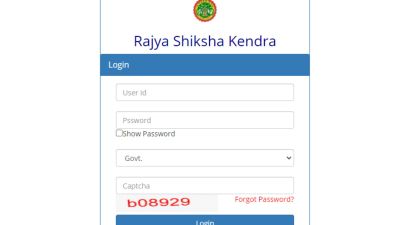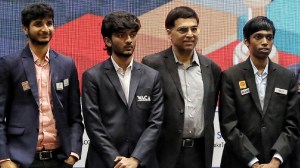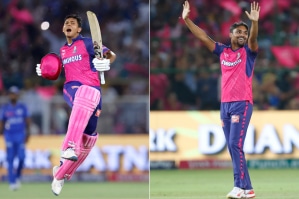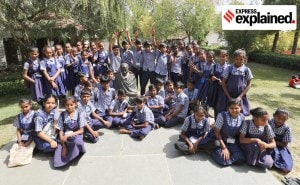- India
- International
In Odisha, programme helps rural women turn entrepreneurs
The women, part of a Self Help Group (SHG) from Arakhapalli village in Khordha district, are elated that they have made Rs 1.7 lakh in profit this year after selling the harvest from a pisciculture project set up last year under the Odisha government’s Mission Shakti.
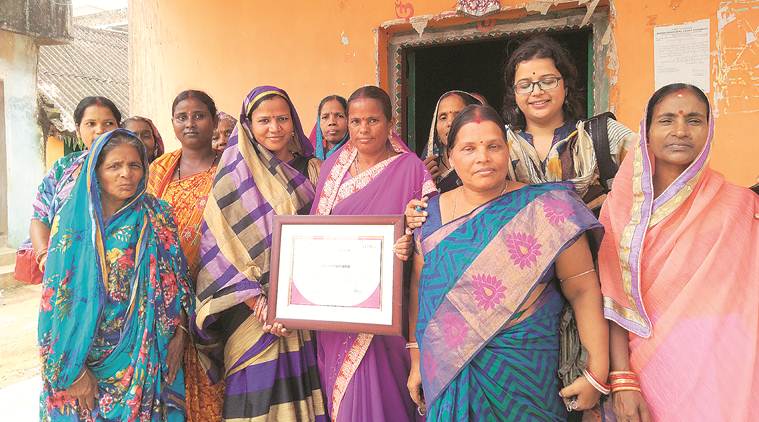 In Ghorodia village, SHG members read electricity meters and use their smartphones to generate bills and collect fees.
In Ghorodia village, SHG members read electricity meters and use their smartphones to generate bills and collect fees.
“We no longer have to beg or steal from the men to pay tuition fee for our children,” says Samsa Begum, 34, as the women around her nod in agreement.
The women, part of a Self Help Group (SHG) from Arakhapalli village in Khordha district, are elated that they have made Rs 1.7 lakh in profit this year after selling the harvest from a pisciculture project set up last year under the Odisha government’s Mission Shakti.
Now overseeing six lakh SHGs with 69 lakh women, Mission Shakti, which the Naveen Patnaik-led BJD government began in 2001, ensures government departments help SHGs with sustainable income practices and lifestyle changes. This is an improvement over the usual thrift-and-credit mechanism of SHGs, where women lend to each other or leverage bank loans.
In Arakhapalli village, women SHGs have been encouraged to take up pisciculture, with Mission Shakti and the state Fishery Department leasing ponds to women for Rs 2,000 per acre per year, against market rates of about Rs 50,000.
The government also provides around 60 per cent of the project cost as subsidy. In the case of the Arakhapalli SHG, that works out to Rs 90,000 in subsidies to purchase fingerlings, food and medicines for the fish. The subsidy, the women members say, helped them make a windfall profit in the first year of the project.

“Money in the hands of rural women or semi-poor, urban women has a far greater impact on communities than money in the hands of men,” says Commissioner-cum-Director, Mission Shakti, Sujata Karthikeyan. “Industrialisation does boost the state economy, but the micro economy has to be boosted with the help of women.”
Explaining the need for subsidies and low rents (on ponds), Karthikeyan adds, “The aim is also that SHGs graduate to micro enterprises. The government has to handhold up to a level, but after that, the SHGs will be able to fully compete in the free market”.
To increase the lure of economic ventures for Odisha’s women, Mission Shakti is incubating those that combine food security with an income source. “Women-led pisciculture is also a food-security project because their children and the larger community get to eat some of the fish cultivated, fresh and without any additional expense,” says Shri Pati, a consultant with Mission Shakti.
Several SHGs under Mission Shakti also run Take Home Ration (THR) units, where they produce, pack and sell ‘chhatua’, a nutritious food made by mixing roasted wheat, Bengal gram, nuts and sugar in a mandated proportion. While the income from THRs are modest, women working there say they are happy to be doing the work because chhattua mixed with milk is an inexpensive and effective deterrent against child malnutrition.
“We feed the children of a cluster of villages as well as our own,” says Sudiptaa Sahu, who works with a THR unit in Bolagarh. “Money comes second.”
Mission Shakti is in the process of setting up a Management Information System (MIS) that will give details of how many of its six lakh SHGs are engaged in a particular economic activity.
In its 2019 election manifesto, the BJD had promised to provide business worth Rs 5,000 to women SHGs, with a profit of about Rs 500 crore.
A few kilometers away, in Ghorodia village, another SHG registered under Mission Shakti reads electricity meters in the locality. Women, many of whom haven’t studied beyond high school, use smart phones to generate bills, collect fees and submit the collection to electricity distributor FEDCO (Feedback Energy Distribution Company).
“We (women) make better collection agents because people cannot turn us away when we ask them to settle electricity dues. Even when the man of the house is away, we as women can step into the customer’s kitchen and catch hold of his wife,” laughs Sushama Sahoo, 50, member of Maa Mangala SHG.
For every Rs 100 collected in dues, each woman receives Rs 6 as collection or agent fee. She also earns Rs 3 per meter reading. While earnings vary, every group member earns on an average Rs 2,000 a month.
Apr 23: Latest News
- 01
- 02
- 03
- 04
- 05











